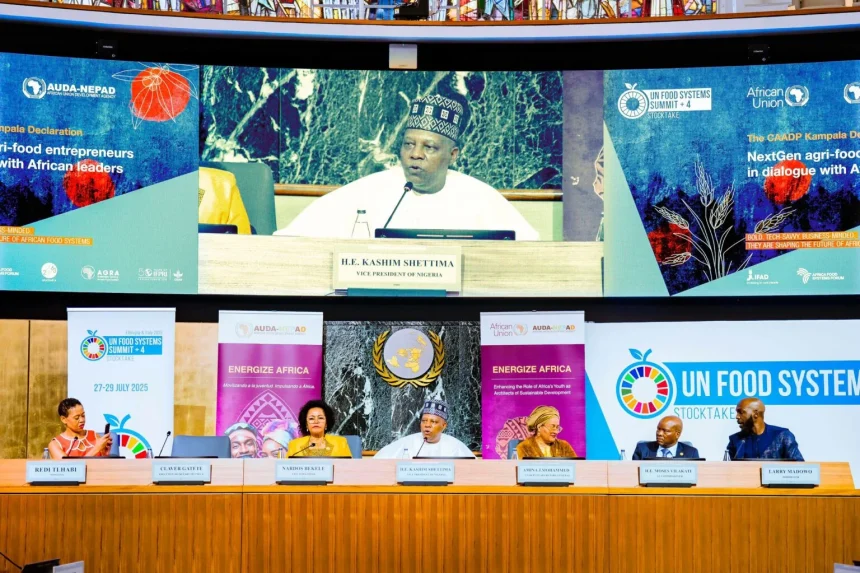The vice-president declared that the youths-led innovation would be central to the country’s food systems transition.
” A nation that is prepared for the future is not known by the promises it makes but by the place it gives to its youth in shaping those promises.
” To see African youths leading the charge in this essential sector speaks more eloquently than any speech,” Shettima stated.
He said already Nigeria had inaugurated an Agricultural Sector Working Group and a Technical Committee to coordinate national implementation of the Kampala Declaration and develop the 10-Year Strategic Action Plan.
According to him, the plan will align national and subnational priorities, promote public-private partnerships, and embed strong youth engagement at every level.
He also stated that the Federal Government had recapitalised the Bank of Agriculture with N1.5 trillion ($1 billion) to support the Youths Agricultural Revolution in Nigeria.
Shettima said the bank would provide loans of up to N1million to young farmers and agri-groups across the country.
“This is not charity. It is strategic inclusion. It is resilience engineered into policy,” Shettima said.
He listed several ongoing initiatives, including Nigeria’s collaboration with the Netherlands, CGIAR, and IITA under the Youth in Agribusiness InitiativH.
Shettima said the initiative was targeting 10,000 youths, with 40–50 per cent of them women, across innovative hubs in horticulture, poultry, aquaculture, and cassava processing.
He also cited investments in mechanisation, greenhouse expansion, and irrigation systems, along with the $1.1 billion Green Imperative Project with Brazil, which was enhancing year-round agricultural productivity and value chain efficiency.
“We launched the first 2,000 tractors in a 70-million-dollar investment, targeting over 550,000 hectares of land and reaching more than 550,000 farming households.
” In partnership with John Deere, we are deploying 10,000 tractors over five years,” he said.
Shettima reaffirmed Nigeria’s call for increased investment in value addition and agro-processing to end the export of raw commodities and build more resilient local economies.
The forthcoming 10-Year Action Plan, he added, would prioritise training and mentorship in agro-technology and agribusiness, with a strong monitoring and evaluation framework.
“This is not a sprint. It is a generational relay that requires collective action, strategic partnerships, and an unwavering commitment to shared responsibility,” Shettima said.



